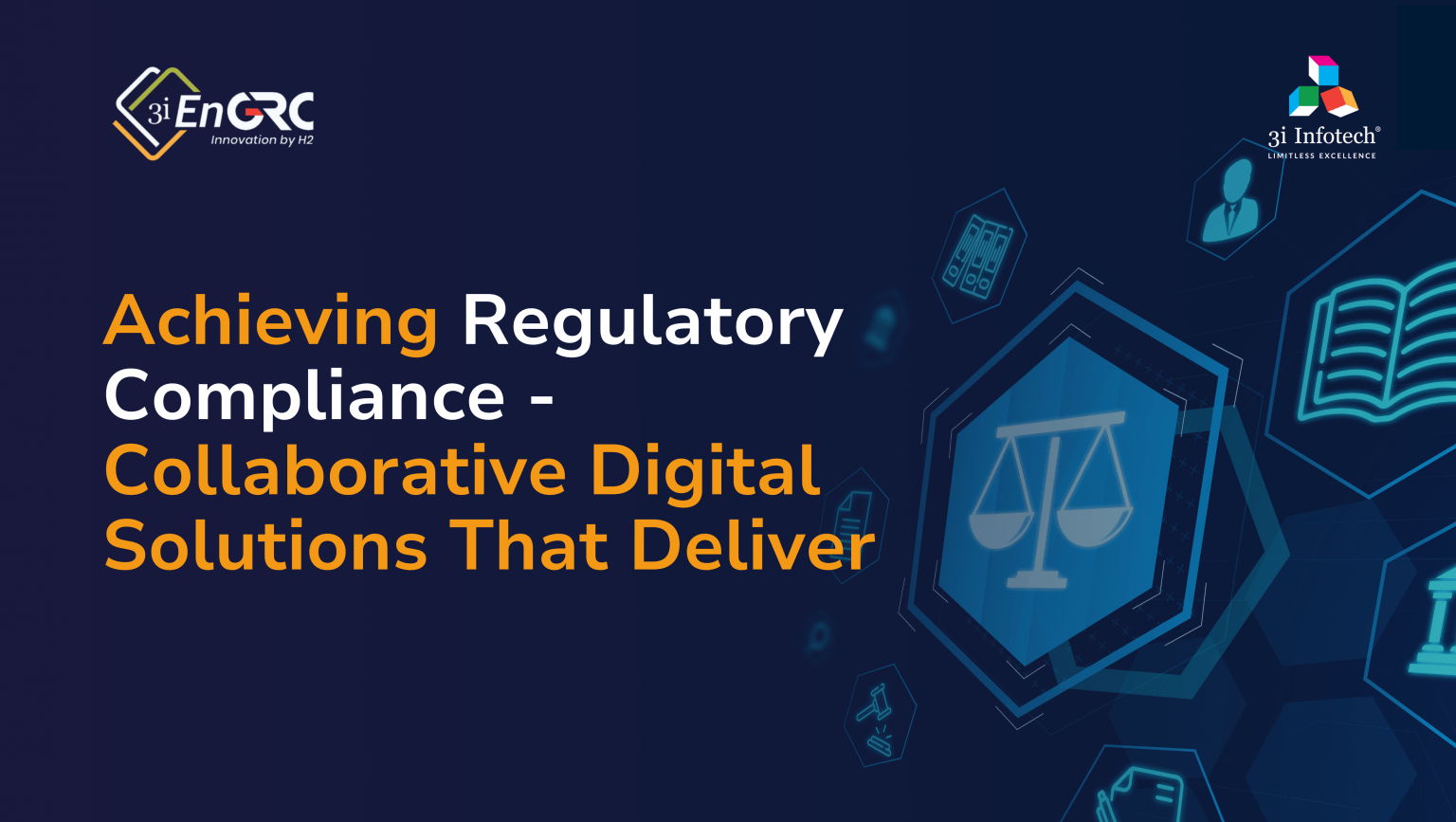As businesses grow and extend their operations, they are subject to large volumes of regulations that often become intricate due to overlapping jurisdictions from multiple authorities. Implementing appropriate measures, policies, and processes to manage their legal and mandatory adherence helps them stay secure and compliant.
Are you regulatory-ready?
Regulatory compliance refers to businesses adhering to relevant local, domestic, Government, international and industrial laws or regulations that pertain to their operations, and governs all their activities, people, processes, and customer interactions. And this is contingent on factors such as the organization’s size, industry segment, operational scope, and business offerings.
The need for a regulatory framework
Post – COVID, the perspective of compliance has changed from reactive and normative approaches to proactive and preventive strategies. And designing corporate standards around digital assets and data to protect stakeholders and business operations has made regulatory compliance very crucial for an organization.
Advantage – A Compliant Regulatory Posture
- Safeguards business reputation and brand value.
- Protects customer interests.
- Helps senior management and leadership avoid criminal liabilities.
- Ensures security by preventing data breaches and operational risks.
- Prevents lawsuits due to non-compliance.
- Strengthens business continuity by mitigating risks due to downtime and revenue loss.
- Increases efficiency and safety at the workplace.
- Increases business value through aligned synergies to gain customer trust.
Responding to regulatory changes – a streamlined approach
To be successful a regulatory framework must be robust and provide clear guidelinesto enable businesses to operate confidently and efficiently.
This starts with:
- Identifying industry-wise regulations based on geographies and segments.
- Zeroing in on the compliance requirements for each law, analyzing, summarizing, and classifying them according to their relevance in accessible formats.
- Documenting the procedures for regular audits.
- Reviewing and monitoring standards regularly.
- Updating data in real-time with guidance and enforcement procedures to manage regulatory change.
- Managing notifications, conducting impact assessments, addressing deficiencies, analyzing data, and updating policies dynamically.
- Offering valuable insights, including the current status of regulatory change management, high-priority actions, and encountered risks.
Why is Regulatory Compliance Important?
Transparent compliance mechanisms foster trust and goodwill with customers, clients, and business partners, leading to enhanced brand perception and increased organizational profitability.
A solid regulatory compliance strategy helps businesses stay on top of risks by being future-ready.
Stay compliant with EnGRC A Modular, Scalable, Configurable Enterprise Governance, Risk & Compliance (GRC) Solution, EnGRC equips you with the tools and strategies to proactively manage regulatory changes, enabling efficient and strategic implementation across your organization to mitigate compliance risks effectively.
Know more. https://www.3i-infotech.com/engrc/

